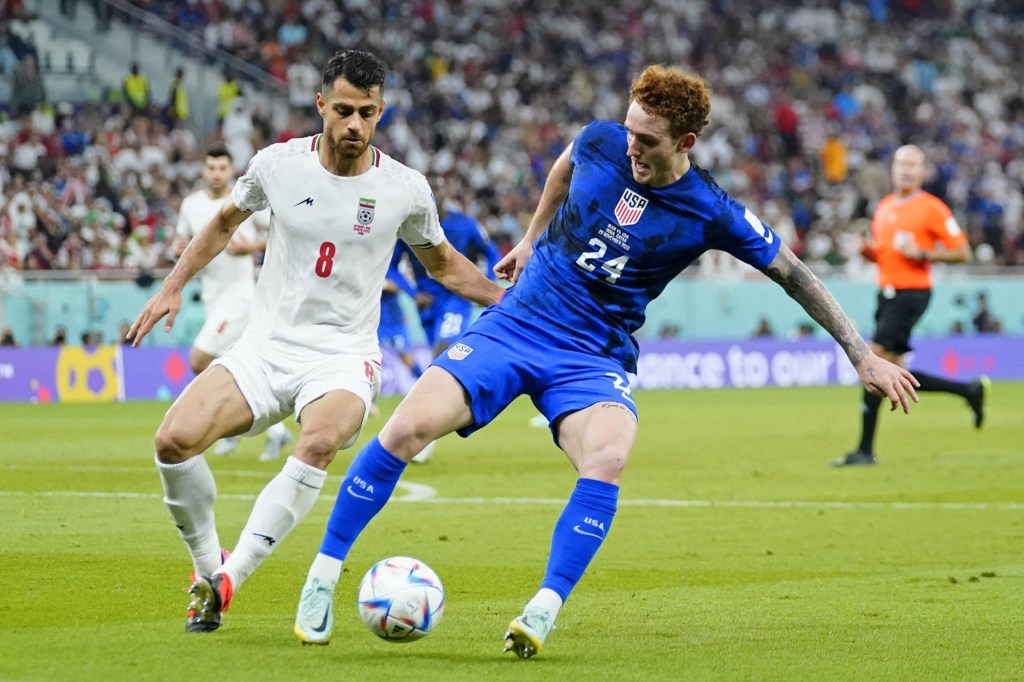Promotion-relegation systems have long been a bugaboo in American professional soccer.
The practice has been the norm in Europe for over a century, allowing for fluidity within a given country’s soccer hierarchy; it’s a remnant from the days of amateur sports in the mid-1800s, when meritocracy superseded any concerns of financial fairness.
But like most North American sports leagues, the domestic top-tier Major League Soccer was founded on professionalism — which creates expectations for stakeholders — and has not been able to consider the soccer-favorite practice as it continues to grow.
“Promotion-relegation rewards teams and owners based on performance and not necessarily building stadiums and building a league,” MLS executive vice president of communications Dan Courtemanche tells Front Office Sports. “And because we are a young league, we’ve had to create teams on the field, we’ve had to build stadiums, we’ve had to build facilities, we’ve had to build infrastructure.”
But now, the American promotion-relegation debate returns, as the United Soccer League is set to discuss the matter at its mid-year meetings this week in Colorado Springs; owners will not vote on whether to pursue it further — as previously reported — but it will be a key topic on the agenda, a league source confirmed to FOS.
The USL first broached the subject at its mid-year meetings two years ago and began seriously looking at the idea of implementing promotion and relegation in the last 18 months. A source with knowledge of the meetings told FOS that the league has contracted external consultants to explore the logistics of promotion-relegation and inform team owners about it.
The source adds that this week’s meetings will be centered on solidifying the business behind the concept, covering such topics as partnership opportunities and media rights.
One of the USL’s primary goals with potentially implementing promotion and relegation for its top two leagues — the USL Championship and USL League One, second and third in the U.S. soccer hierarchy, respectively — would be to differentiate it from the league at the top of the American soccer pyramid, MLS.
But in the long run, promotion and relegation could serve to attract talent to North America regardless of which league they end up in.
“It’s been the third-rail conversation for decades, and it’s no panacea… but it’s the one thing MLS has avoided that I think could truly take things to the next level,” says CBS Sports analyst and former MLS player Kyle Martino. “It’s the greatest sporting meritocracy on the planet and the American sports market has this strange thing that rewards the worst teams by giving them the best players the next season.”
“The money is crazy now,” USMNT and Fulham defender Tim Ream recently said on the Front Office Sports Today podcast. “If it does get implemented… it could end up where the media and TV rights start to spike… There’s still a lot of guys who would go over and play in MLS and the States, if that kind of situation were to come about.
“I’m all for promotion and relegation.”
Of course, the system wouldn’t be without its difficulties. Because European countries are generally much smaller than the United States (and Canada, for that matter), traveling between each of the clubs as they make their entrance into a new league is less financially and logistically complicated than it would be in North America.
And, as mentioned, promotion-relegation would be a tough sell to new clubs as the MLS continues to expand under its current model.
“If you’re John Ingram and Nashville SC, and you just built a privately funded 30,000-seat stadium in Nashville,” says Courtemanche, “then all of a sudden you buy into this league, and three years later you might be relegated after you just made an investment in all this.”
Still, the league has come a long way in its thinking on the topic. Courtemanche says a decade ago MLS never would have considered it. Today, it’s saying there are no plans — but also never say never.








![[Subscription Customers Only] Jun 15, 2025; Seattle, Washington, USA; Botafogo owner John Textor inside the stadium before the match during a group stage match of the 2025 FIFA Club World Cup at Lumen Field.](https://frontofficesports.com/wp-content/uploads/2026/02/USATSI_26465842_168416386_lowres-scaled.jpg?quality=100&w=1024)
![[Subscription Customers Only] Jul 13, 2025; East Rutherford, New Jersey, USA; Chelsea FC midfielder Cole Palmer (10) celebrates winning the final of the 2025 FIFA Club World Cup at MetLife Stadium](https://frontofficesports.com/wp-content/uploads/2026/02/USATSI_26636703-scaled-e1770932227605.jpg?quality=100&w=1024)





![[US, Mexico & Canada customers only] Feb 6, 2026; Riyadh, SAUDI ARABIA; Jon Rahm in action during the third round of play at LIV Golf Riyadh at the Riyadh Golf Club.](https://frontofficesports.com/wp-content/uploads/2026/03/USATSI_28173562_168416386_lowres-scaled.jpg?quality=100&w=1024)

![[US, Mexico & Canada customers only] Sep 28, 2025; Bethpage, New York, USA; Team USA's Bryson DeChambeau reacts after hitting his approach on the 15th hole during the singles on the final day of competition for the Ryder Cup at Bethpage Black.](https://frontofficesports.com/wp-content/uploads/2026/03/USATSI_27197957_168416386_lowres-scaled.jpg?quality=100&w=1024)

